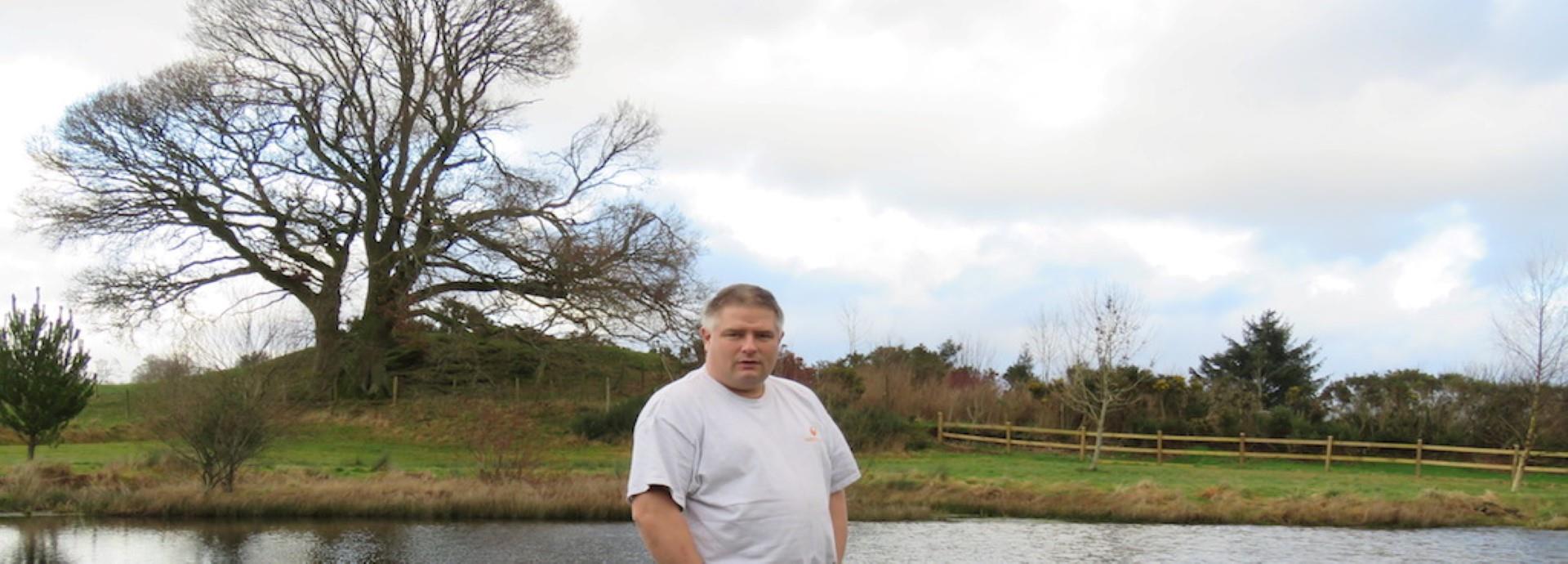

John Dunstan is a man with a very particular set of skills, acquired over a very long career. See why these skills have made him invaluable as a field service superintendent with Wärtsilä Seals & Bearings.
The one word that best describes the scope of John Dunstan’s work is “variety”, since no two days are ever the same. As a field services superintendent based in Wärtsilä’s Havant office in the U.K., Dunstan gets called upon whenever a customer contacts the company with a seal-related problem.
“I’ve been working offshore and have done diver-assisted jobs, mainly on cruise ships. These diver jobs are done in the port whilst the passengers are still on board. However, most of my work is planned beforehand which is why I often work at yards,” he explains.
Typically, customers contact the service team using various channels: by phone, the joint service mailbox, via account managers and other Wärtsilä intergroup networks. Details of service jobs are sent to the assigned field services superintendent through a MobilityApp on their phone. In this case, Dunstan, once he receives details of a job, will make urgent travel and accommodation arrangements to visit customers’ vessels wherever they are in the world. Once there, he assesses the repairs needed and whether any spare parts are required.
“When I get there, I may be supervising three or four people, depending on the work to be done, and sometimes I may be working alone – often up to sixteen hours a day. Every assignment is different,” he says.
Always prepared
Dunstan usually gets to the site a day before work is scheduled to begin. Since the spare parts are often made to order, they are sent in advance either to the ship or to the yard. Sometimes, express services are used to ensure that the spare parts arrive on time, especially if Dunstan is already on board.
Before the work can begin, there is a safety briefing followed by a demo, which each yard provides. Then, the time plan has to be arranged with the ship’s representative, after which the work can begin.
“Overhauling the seal system can be a one-day job, or it can last for several weeks,” says Dunstan. “Each ship has up to four shaft seals, two rudder stock seals and six stern tube bearings, and sometimes there are even water quality systems involved, so it’s never easy to estimate the time needed. The main thing is that we work closely with the shipyard and that we are synchronised with everyone working there while the vessel is in dry-dock.”
Dunstan joined Wärtsilä for the first time in 2000 as a design engineer, then left to explore other careers, before returning in 2012, a choice he couldn’t be happier about.
“It’s great working for a huge global company. Wherever I am in the world, I come across fellow Wärtsilä colleagues. It’s exciting to be part of something so international."
Life on the road
Carrying out overhauls and repair projects in different countries always means having to adapt to the local ways of working. Sometimes language barriers need to be overcome. Fortunately for Dunstan, English is the lingua franca of the global marine industry. However, when everything else fails, Dunstan laughingly says he “reverts to using hand signals to communicate”.
Continuously expanding and updating one’s know-how is important for each field services superintendent and engineer. Last year, Dunstan took the Helicopter Underwater Escape Training programme, which is required before going to offshore oil rigs. There he spent a day in a swimming pool escaping from a fake helicopter that can be dunked in the pool and rotated to different angles.
“I participate in approximately one large training course per year. Most of the training I’m involved in has me training new field services engineers or design engineers on-site.”
The part of his job that Dunstan enjoys the most is the travelling, and he has had his share of memorable moments.
“I remember working on repairs on a tug boat, one Sunday afternoon, in Sierra Leone. After my work was done, I sat on the deck enjoying the beautiful jungle scenery. I couldn’t help but think, as we sailed back down the river to the port, this job has its pluses and life could be worse,” he concludes.
Did you like this? Subscribe to Insights updates!
Once every six weeks, you will get the top picks – the latest and the greatest pieces – from this Insights channel by email.


